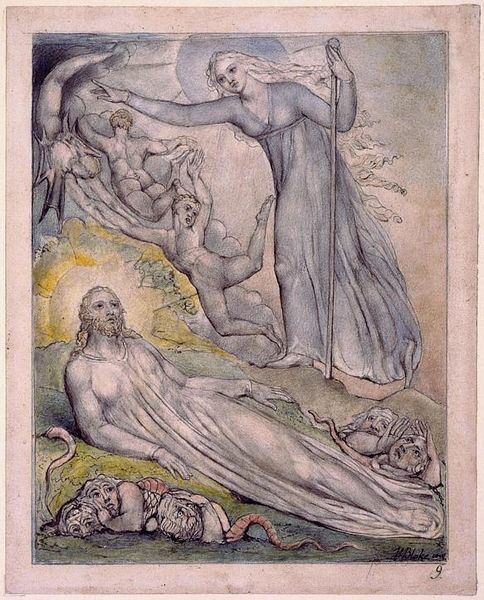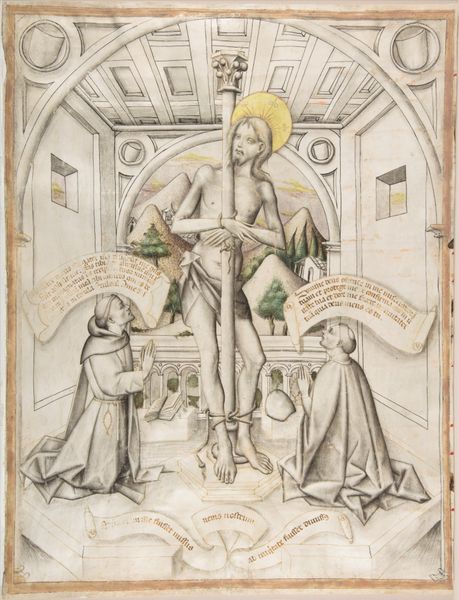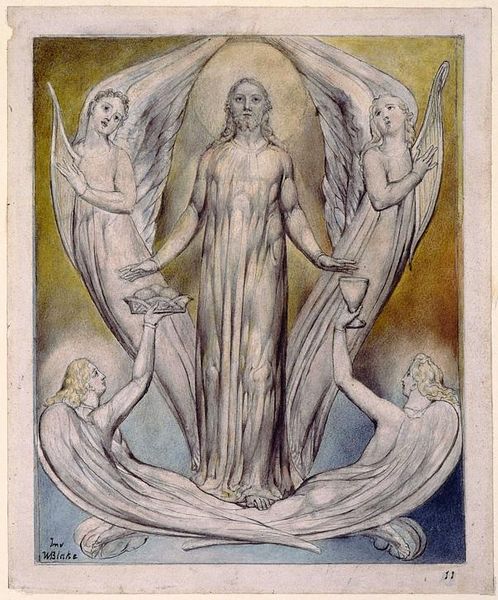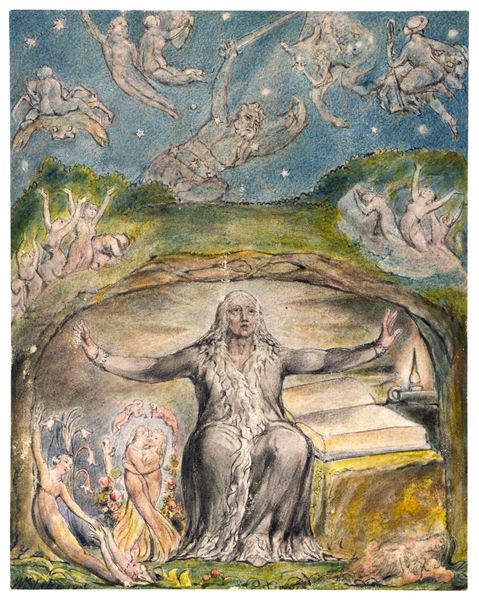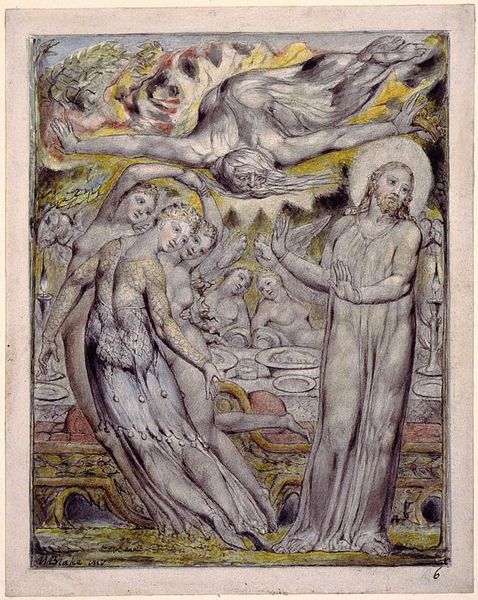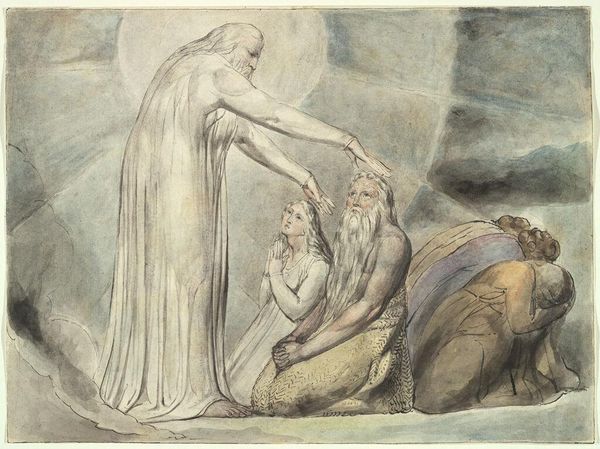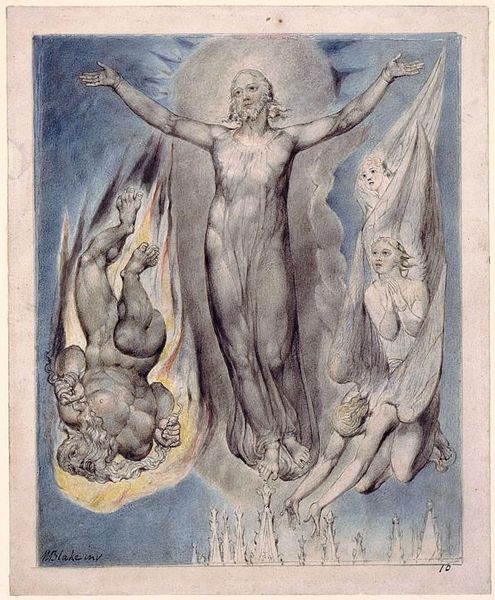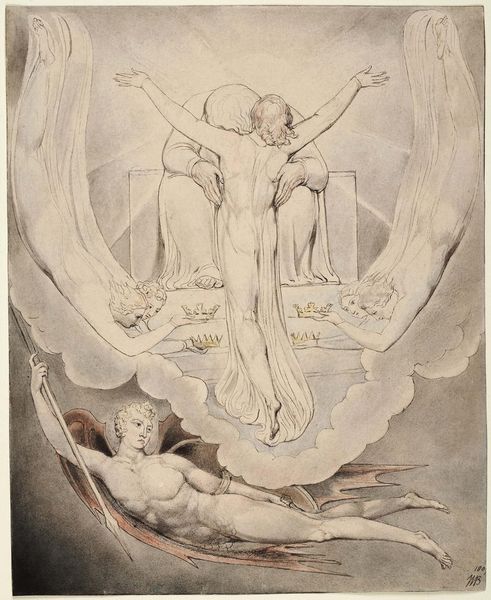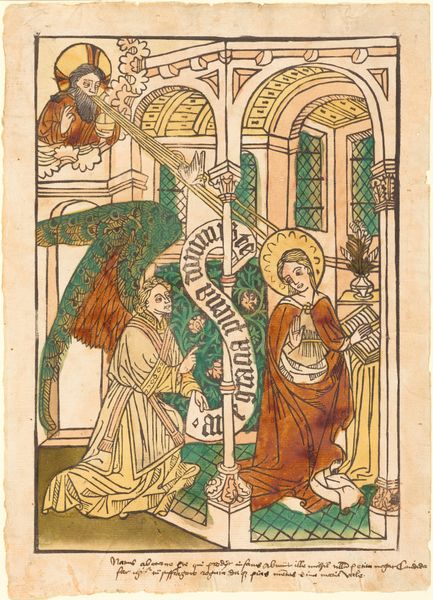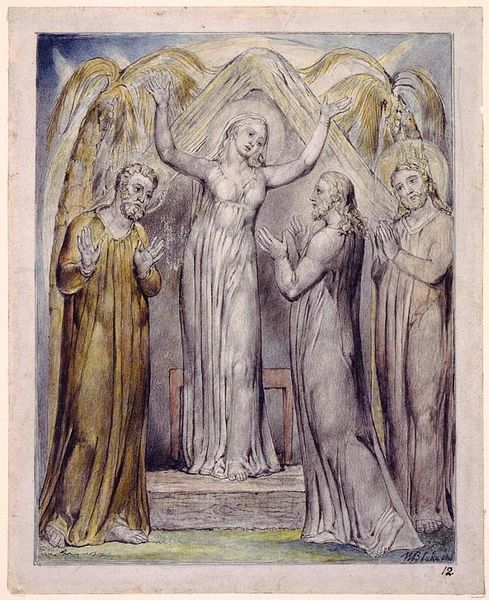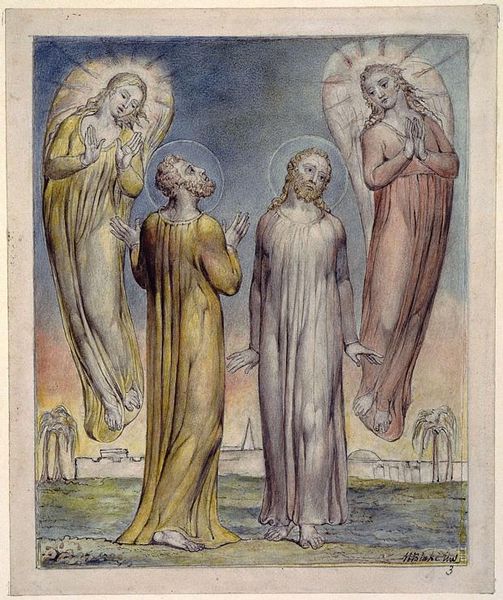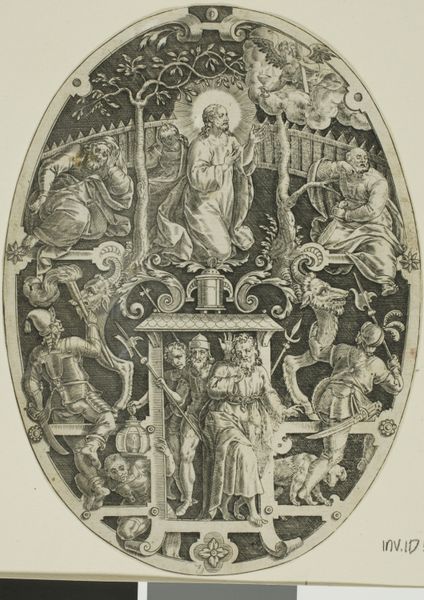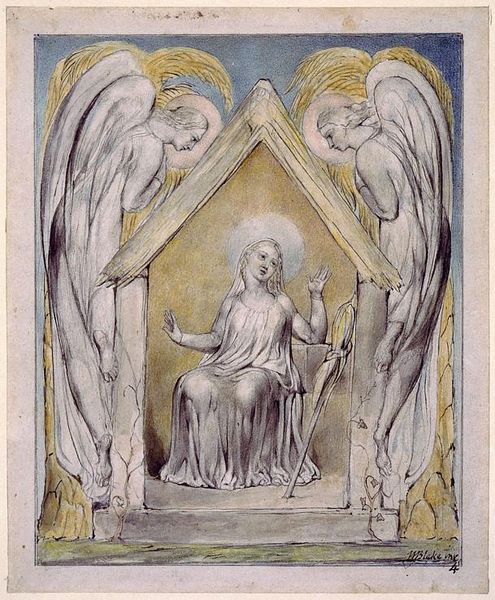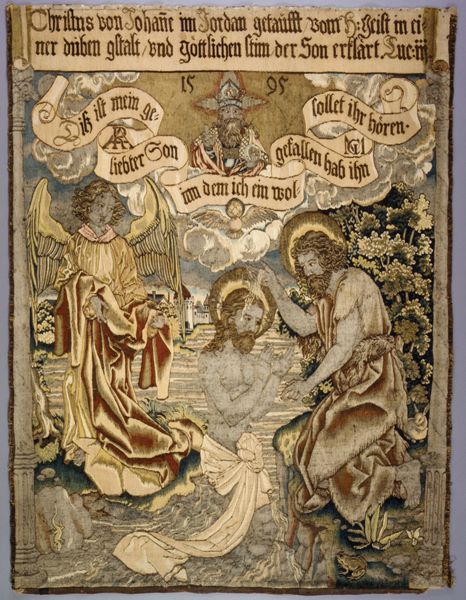
painting, watercolor, pen
#
allegory
#
narrative-art
#
painting
#
figuration
#
oil painting
#
watercolor
#
famous-people
#
romanticism
#
pen
#
history-painting
#
watercolor
Copyright: Public domain
Curator: Ah, welcome. Here we have William Blake's watercolor and pen drawing, "The Spirit of Plato," created around 1820. Editor: It feels… otherworldly. Ethereal, even. Look at the way the figures seem to float and the soft palette of faded yellows, blues, and grays. It's a dreamlike landscape. Curator: Indeed. Blake’s imaginative interpretation of Plato offers a glimpse into the artist’s complex cosmology. Note the central figure of Plato, head in hand, lost in thought amidst swirling forms. His melancholic pose suggests the burden of knowledge. Editor: I’m drawn to how the figures are positioned within these orbs or spheres. Are these meant to represent different realms or ideas? What kind of labor and technical prowess are we looking at here? Watercolor can be such a fleeting medium... Curator: Precisely. Each sphere does represent a realm of Platonic thought, you might consider that each stage would’ve taken a certain time. It also might reflect states of being or levels of understanding. The pen work reinforces and binds these together. These are not simply illustrations; these are visions laboriously brought forth by a very individualistic process. Editor: You've captured it perfectly. There is so much movement. Almost as if all these different bodies or ethereal figures, the central seated philosopher, the angel beside him are a comment about freedom versus containment within philosophy. I'm seeing the figures at the bottom struggling, maybe representing something carnal? Curator: I couldn't agree more. The earthly struggles are contrasted with those ethereal bodies above, forever moving upward. A divine upward lift. And Plato mediates these different zones. He sits above but dwells perhaps inside one. What do you make of his overall message then? Editor: The social implication is profound, considering Blake's time. Thinking of that particular moment of modernity when manufacturing starts shifting toward abstraction, industrial capitalism makes us more estranged to the conditions of labor... Maybe he offers a social allegory. We labor, we contemplate, we strive, we can get up there... Curator: An apt observation about the interplay between individual struggle and transcendental aspirations, particularly within the context of burgeoning industrialism. "The Spirit of Plato," a complex, timeless meditation by Blake. Editor: Timeless, yet bound to the social and material reality of its making. Thank you for that illumination.
Comments
No comments
Be the first to comment and join the conversation on the ultimate creative platform.
